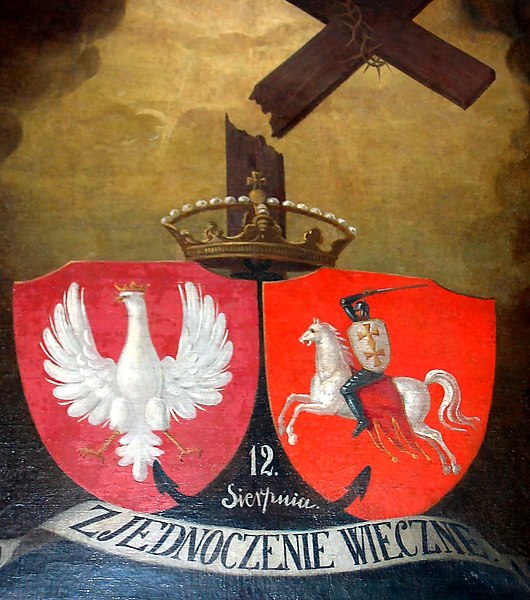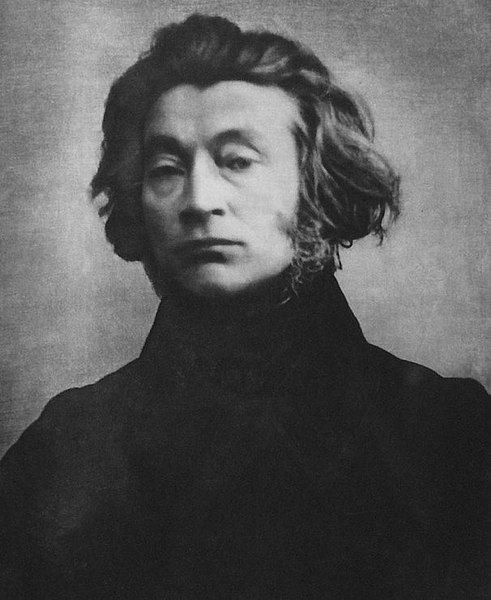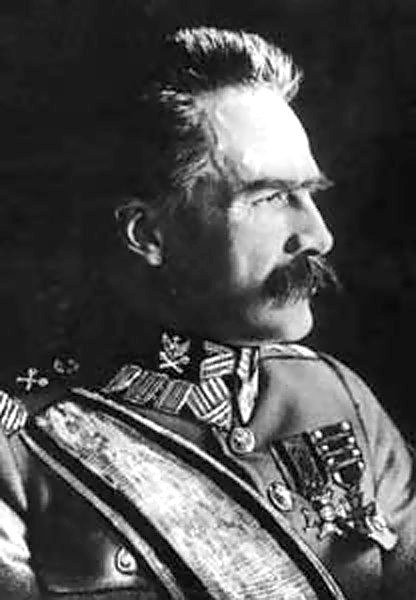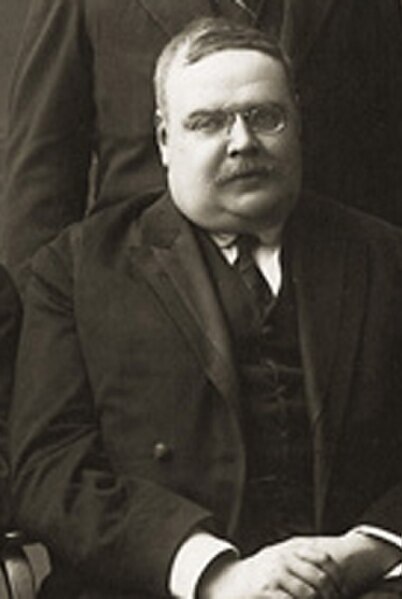Polish-Lithuanian identity
The Polish-Lithuanian identity describes individuals and groups with histories in the Polish–Lithuanian Commonwealth or with close connections to its culture. This federation, formally established by the 1569 Union of Lublin between the Kingdom of Poland and Grand Duchy of Lithuania, created a multi-ethnic and multi-confessional state founded on the binding powers of national identity and shared culture rather than ethnicity or religious affiliation. The term Polish-Lithuanian has been used to describe various groups residing in the Commonwealth, including those that did not share the Polish or Lithuanian ethnicity nor their predominant Roman Catholic faith.
Painting commemorating Polish–Lithuanian union; ca. 1861. The motto reads "eternal union", in Polish only.
Pan Tadeusz, an enduringly popular 19th-century Polish-language poem by Adam Mickiewicz, opens with the line "Lithuania, my fatherland! You are like health."
Józef Piłsudski, the most important Polish political leader of the interwar period, often pointed to his Lithuanian ancestry, and hoped to recreate the old Commonwealth
Mykolas Römeris, was a member of Piłsudski legions, but later chose to be a citizen of Lithuania
The Krajowcy were a group of mainly Polish-speaking intellectuals from the Vilnius Region who, at the beginning of the 20th century, opposed the division of the former Polish–Lithuanian Commonwealth into nation states along ethnic and linguistic lines. The movement was a reaction against growing nationalism in Poland, Lithuania and Belarus. The Krajowcy attempted to maintain their dual self-identification as Polish–Lithuanian rather than just Polish or Lithuanian. The Krajowcy were scattered and few in number and as a result failed to organize a widescale social movement.
Michał Pius Römer (later used Lithuanized name Mykolas Römeris) was one of the better-known members of the Krajowcy movement




